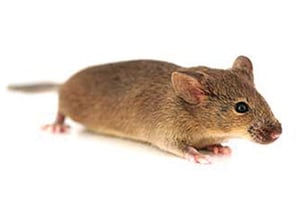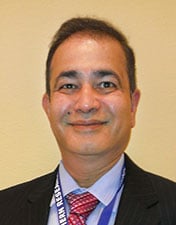ON-DEMAND WEBINAR Historical Control Database of Neoplastic and Non-neoplastic Lesions in 6 month Tg.rasH2 Studies
Presented by:
Madhav Paranjpe, DVM, MS, PhD, DACVP, FIATP
The rasH2 transgenic mouse supports faster and more accurate carcinogenicity studies, with 75% shorter timelines than conventional two-year rodent bioassays. Can this transgenic mouse tighten your drug development pipeline, while reducing false positives?
 In this exclusive webinar, we will explore the historical control database of neoplastic and non-neoplastic lesions from dozens of rasH2 carcinogenicity studies, demonstrating an extremely low incidence of the spontaneous tumors and non-lethal legions which can confound two-year rodent carcinogenicity studies.
In this exclusive webinar, we will explore the historical control database of neoplastic and non-neoplastic lesions from dozens of rasH2 carcinogenicity studies, demonstrating an extremely low incidence of the spontaneous tumors and non-lethal legions which can confound two-year rodent carcinogenicity studies.
 Dr. Madhav Paranjpe, DVM, MS, PhD, DACVP, FIATP, is a Director of Pathology at BioReliance in Rockville, MD, USA. He is primarily involved in the evaluation of Dose Range Finding Studies and final six-month short term carcinogenicity studies.
Dr. Madhav Paranjpe, DVM, MS, PhD, DACVP, FIATP, is a Director of Pathology at BioReliance in Rockville, MD, USA. He is primarily involved in the evaluation of Dose Range Finding Studies and final six-month short term carcinogenicity studies.
Dr. Paranjpe has published twenty papers in peer-reviewed journals and presented several seminars on transgenic mice, particularly the Tg.rasH2. He received an Best Publication award in 2013 from ACT/IJT. Recently, in 2016, he received an award from the 2016 IQ Consortium and AAALAC International Global 3Rs Award for North America for his paper. “Regulatory Forum Opinion Piece*: Retrospective Evaluation of Doses in the 26-week Tg.rasH2 Mice Carcinogenicity Studies: Recommendation to Eliminate High Doses at Maximum Tolerated Dose (MTD) in Future Studies.”
Madhav Paranjpe, DVM, MS, PhD, DACVP, FIATP
Director of Pathology at BioReliance
The rasH2 transgenic mouse supports faster and more accurate carcinogenicity studies, with 75% shorter timelines than conventional two-year rodent bioassays. Can this transgenic mouse tighten your drug development pipeline, while reducing false positives?
Carcinogenicity Testing Insights
 In this exclusive webinar, we will explore the historical control database of neoplastic and non-neoplastic lesions from dozens of rasH2 carcinogenicity studies, demonstrating an extremely low incidence of the spontaneous tumors and non-lethal legions which can confound two-year rodent carcinogenicity studies.
In this exclusive webinar, we will explore the historical control database of neoplastic and non-neoplastic lesions from dozens of rasH2 carcinogenicity studies, demonstrating an extremely low incidence of the spontaneous tumors and non-lethal legions which can confound two-year rodent carcinogenicity studies.
- Low incidence of spontaneous tumors
- No tumor drifts
- Low incidence of lethal degenerative changes
- 75% shorter carcinogenicity testing studies
Presenter:
 Dr. Madhav Paranjpe, DVM, MS, PhD, DACVP, FIATP, is a Director of Pathology at BioReliance in Rockville, MD, USA. He is primarily involved in the evaluation of Dose Range Finding Studies and final six-month short term carcinogenicity studies.
Dr. Madhav Paranjpe, DVM, MS, PhD, DACVP, FIATP, is a Director of Pathology at BioReliance in Rockville, MD, USA. He is primarily involved in the evaluation of Dose Range Finding Studies and final six-month short term carcinogenicity studies. Dr. Paranjpe has published twenty papers in peer-reviewed journals and presented several seminars on transgenic mice, particularly the Tg.rasH2. He received an Best Publication award in 2013 from ACT/IJT. Recently, in 2016, he received an award from the 2016 IQ Consortium and AAALAC International Global 3Rs Award for North America for his paper. “Regulatory Forum Opinion Piece*: Retrospective Evaluation of Doses in the 26-week Tg.rasH2 Mice Carcinogenicity Studies: Recommendation to Eliminate High Doses at Maximum Tolerated Dose (MTD) in Future Studies.”
